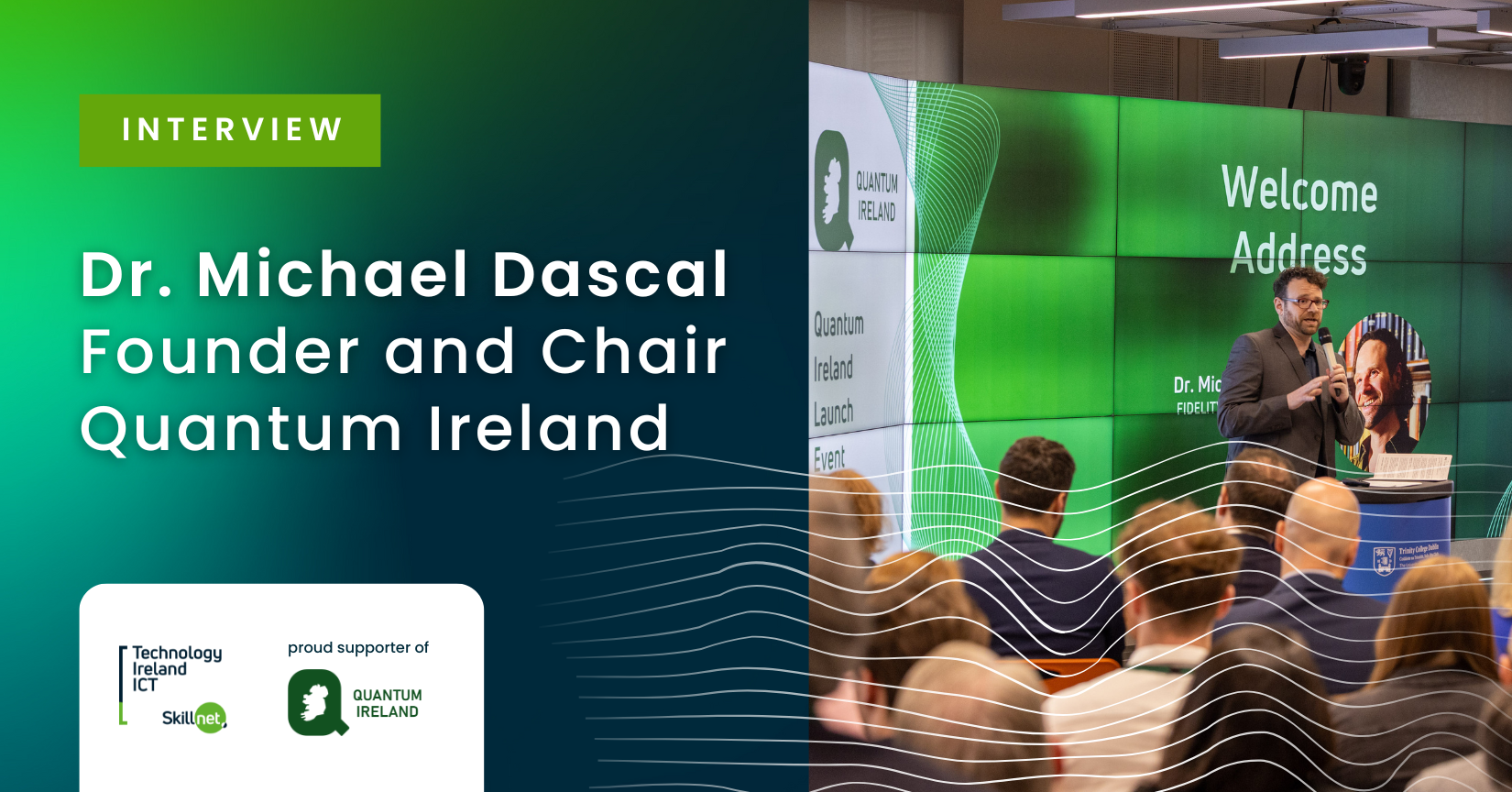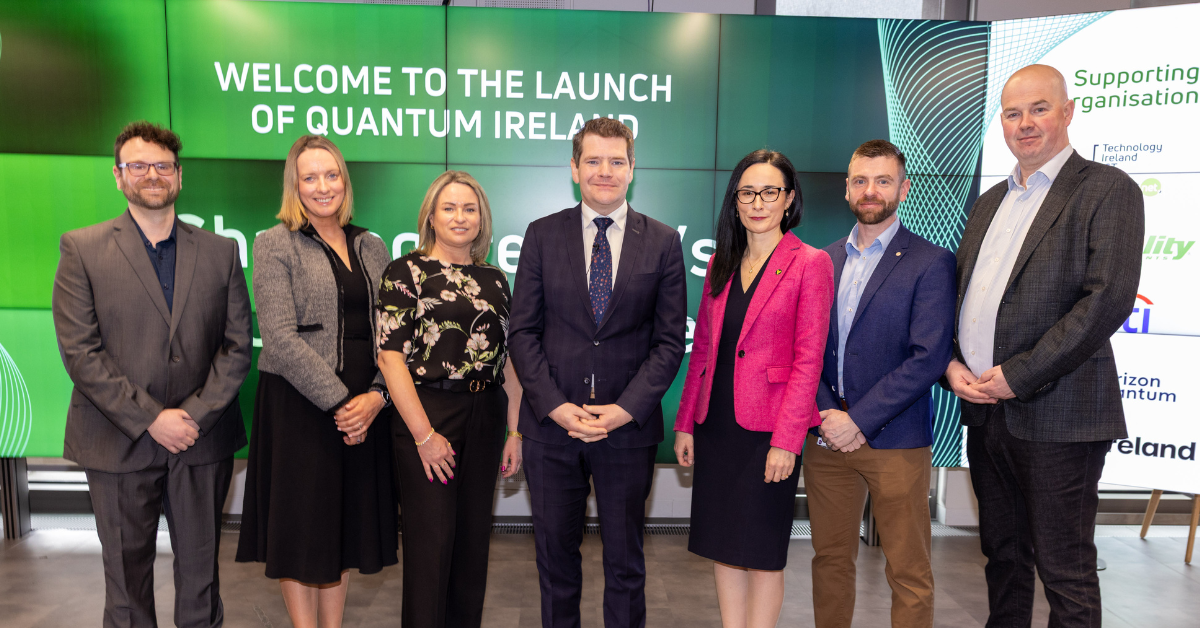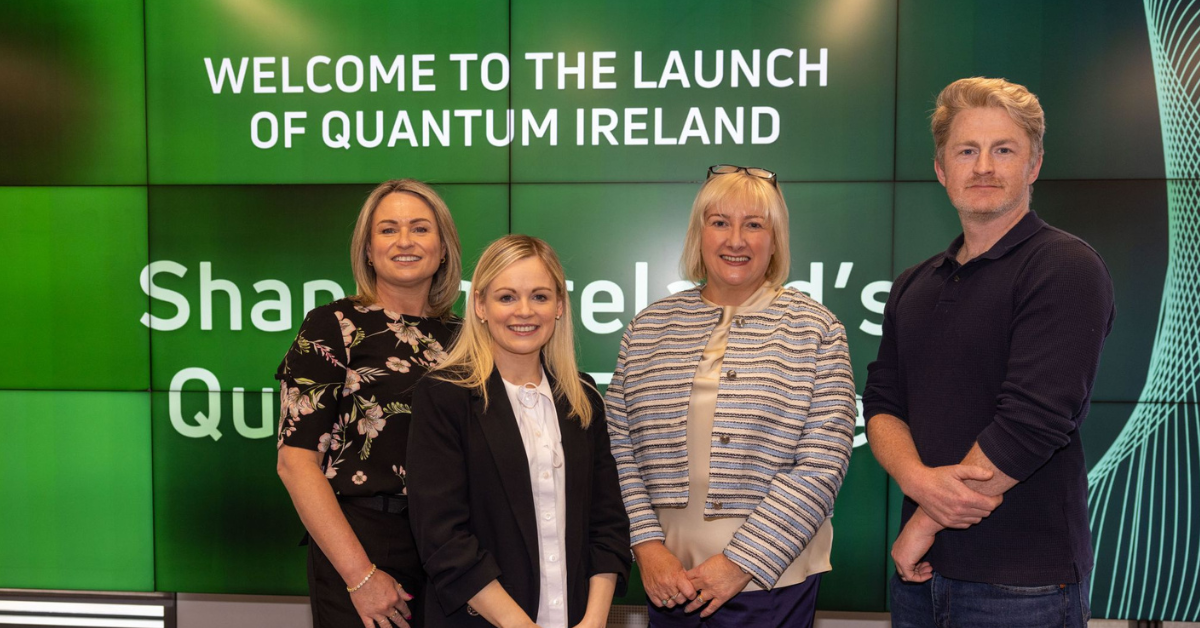
The quantum era is on the horizon, and Ireland is taking bold steps to ensure it is not just a participant, but a leader in this emerging field. Recognising the need for industry collaboration and proactive strategy, Quantum Ireland was officially launched on 14th April 2025. A working group of key stakeholders spanning academia, industry, and government, Quantum Ireland is poised to drive the growth of a dynamic local quantum ecosystem in response to Ireland’s national Quantum 2030 strategy. Technology Ireland ICT Skillnet is a proud supporting organisation of Quantum Ireland.
To explore the vision behind this initiative, we spoke with Dr. Michael Dascal, Founder and Chair of Quantum Ireland and VP of Quantum Product at Fidelity Investments. Dr. Dascal discusses why now is the critical moment for action, the role industry must play in quantum innovation and commercialisation, and how Ireland’s uniquely connected tech community offers a competitive advantage on the global stage.
Can you tell us why now is the right time for the formation of Quantum Ireland?
Quantum technology is still young – there’s a lot to do before much of it becomes commercially viable. Ireland has an opportunity to build an ecosystem that ensures it plays an important role in the global quantum technology landscape.
To build this ecosystem takes time, though, and so we need to start laying the groundwork now if we want to be ready.
As Founder and Chair of Quantum Ireland, how do you envision the role of industry in accelerating quantum innovation and commercialisation in Ireland?
Industry can complement other initiatives, both academic and governmental, in driving both innovation and commercialisation simultaneously. By investing in quantum research (internally and in collaboration with other companies and academics) we could identify new applications and open new opportunities that lay the foundations for new startups to form.
Indeed, this model is already one that many quantum startups are working on and I believe that by leveraging the concentration of companies here in Ireland we can create a hub for this type of innovation to take place.

Ireland is known for its collaborative, agile tech community. How can we leverage this unique ecosystem to generate success on the global quantum stage?
I think our close-knit community gives us a unique opportunity, particularly in the quantum application space. I don’t know anywhere else where academics, multinational companies, start-ups, and government entities are so well connected.
Leveraging this connectivity, we can create open communication channels to share business challenges and technical advances, meaning we can identify possible opportunities and work together to develop new and impactful solutions highly efficiently.
From a business perspective, how should enterprise leaders start thinking about quantum technologies today – what’s hype, what’s real, and what’s next?
There’s no question – quantum is full of hype! But this doesn’t mean that it should be ignored, nor that there isn’t anything to do today.
First off, any company that holds sensitive information (which includes pretty much all companies today) should be thinking about migration to quantum resilience now. This is a long and complex challenge, and we all need to make sure it’s ready well before cryptographically relevant quantum computers are on the scene.
When it comes to quantum computing, we may still be years away from seeing quantum advantage or utility, and indeed, we’re still trying to identify what these advantageous applications will be when the necessary hardware becomes available. That said, technology decision makers should be keeping an eye on the sector to avoid being blindsided. It’s always possible that a significant advance will happen quickly, and we recently saw with generative AI how disruptive such a technological acceleration can be for those who aren’t ready.
Finally, I should note that there are some quantum technologies that are very nearly commercialisable now. Quantum sensors, for example, are being explored in transportation, MedTech and other industries, some of which are already being tested in hospitals. Additionally, some quantum key distribution equipment is available today albeit with certain limitations.

What lessons can we learn from other frontier technologies, like AI or blockchain, when it comes to building talent pipelines, policy support, and investment in quantum?
In some ways quantum is one in a long line of emerging technologies, and we already know quite well how education, government strategy, and industry research and innovation play a role here.
For example, it’s important to understand that technology hubs require coordinated efforts and investments into attracting talent and researchers, providing resources and infrastructure for startups to form and collaborate, and programmes that promote knowledge transfer from academia to industry.
Quantum is also different, though, and will remain so for at least for the next little while. Researching and developing new quantum algorithms and applications currently requires PhD level education, which means that if we want to attract future quantum founders then we need to look into attracting graduate students and retaining them after they complete their studies. This kind of effort is significant, though, and will likely need to involve both the public and private working together to be successful.
Finally, what’s your vision for Quantum Ireland over the next 5 years? What would success look like in 2030?
Quantum Ireland is here to help build an Irish quantum ecosystem. While this will take time, I would hope that in five years this ecosystem is growing strongly, and so Quantum Ireland will no longer need to exist in the form it does today.
We may pivot into a different type of organisation with new goals along the way, of course, but I think we’ll have to wait and see what the community and ecosystem need before we can predict this.

Unlock New Opportunities with Quantum
As Dr. Dascal highlights, the development of Ireland’s quantum ecosystem will not happen overnight – it requires deliberate collaboration, long-term investment, and a commitment to fostering both talent and innovation. Yet the opportunity is significant: by starting today, Ireland can position itself as a hub for quantum technologies that will shape the next wave of global digital transformation.
Learn more about training in Quantum with Technology Ireland ICT Skillnet

